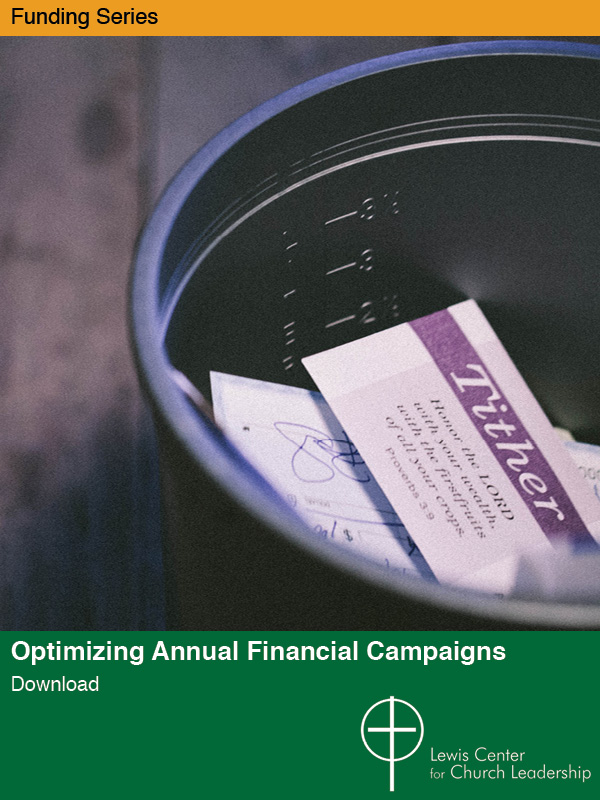Stewardship expert Charles Lane says that thanking your church’s donors isn’t difficult but remembering to do it often is. He outlines key elements in developing a thank you plan and stresses the importance of sticking to it.
I was at our local zoo a few weeks ago and watched a family of four emerge from the gift shop. Each of the kids was carrying a new stuffed animal. As they walked, dad said to the kids, “What do you say to mom?” In unison, the two said, “Thanks, mom.” And off they went.
It is hard to remember to say thanks — for kids, for adults, and for congregations. It is also important to say thanks. The best way to remember to say thanks is to have a thank you plan. Don’t wait until a gift comes and then figure it out on the fly. Have a plan for thanking, and then follow your plan. I’d like to suggest three opportunities for saying thanks to the people of your congregation.
Worship
The first place you can thank is in worship. In recent years I’ve become a big fan of what some congregations call their Thanksgiving Moment. This is a short “thank you”, usually near the time of the offering, that briefly tells the story of one ministry of the congregation and thanks those in worship for their financial giving and/or volunteering of time which has made this ministry possible. If you have the capabilities, showing a photo of the ministry will add a lot. A pastor or someone connected with the ministry can share the Thanksgiving Moment — and this works equally well during in-person and online worship.
What are three keys for a successful Thanksgiving Moment?
- Keep it short.
- Stick to the point.
- Make sure it contains a clear thank-you.
In the moment and in person
A second opportunity for thanking is face to face, as the occasion arises. For this to happen, the pastor must know what people give, since it is most often the pastor who will do this face-to-face thanking. Recently, my wife and I made a gift to a nonprofit where we volunteer regularly. The first time we volunteered after making the gift, both the development director and the CEO sought us out and thanked us for our gift.
This sort of “as the opportunity presents itself” thanking should happen in every congregation. It can be thanks for consistent, regular giving. It can be thanks for a special gift. It can be thanks for ongoing involvement in one of the ministries of the congregation. Since Covid is often keeping us apart, a quick phone call would also work.
Handwritten thank-you notes
The third way to say thanks is to write a note and pop it in the mail. I know in this day of electronic communication, the mail sounds so 1980s, and this is precisely why it is effective. No one is expecting it, so it stands out from the daily communication clutter that fills our lives. Here’s one strategy for doing this effectively:
- Postcard blitz. The pastor and/or church council members could have a supply of postcards with a photo of the church on the front. On a regular basis, these leaders could think of three or four people who have done something worthy of a thank-you. They could write a quick note, pop it in the mail, and know that it will brighten someone’s day.
- Contribution records. Every congregation sends out records of contributions. When these go out, make sure each is accompanied by a letter that shares highlights of the congregation’s ministry, and says a clear word of thanks.
- Annual giving plan. If your congregation asks for members to indicate their giving plan for the coming year, make sure the letter acknowledging this commitment includes a word of thanks. How about a handwritten sentence from the pastor on each letter?
Saying thanks isn’t difficult but remembering to do it often is. Hopefully you can begin a comprehensive practice of thanking that includes worship, in the moment, and handwritten notes. If you are interested in more detail, you can download the “Sample Thank-You Plan” at embracingstewardship.com.
This article originally appeared in the Stewardship Leaders Newsletter issued by Faith+Lead at Luther Seminary on October 26, 2021. Used by permission.
Related Resources
- Always Say Thank You by Cesie Delve Scheuermann
- Developing a Thank You System for Your Church by Ann A. Michel
If you would like to share this article in your newsletter or other publication, please review our reprint guidelines.






